Published Mar 17, 2023
T’Pol’s Inner Strength: Lessons from Enterprise’s First Vulcan Officer
One fan uncovers T'Pol's true power.

StarTrek.com / Rob DeHart
Star Trek, fortunately, is not lacking in strong women characters, providing role models for fans of all gender identities. Characters like Captain Kathryn Janeway, Kira Nerys, Seven of Nine, and Jadzia Dax immediately come to this seasoned Trekkie’s mind. An admirable pillar of strength throughout Star Trek: Enterprise is T’Pol due to her integrity and resilience in the face of adversity.
Taking a cue from the titular character and stepping outside my comfort zone, I'm here to share insights I’ve gained about her dynamic character development from re-watching the series as an adult. T’Pol’s strength comes not from the volume of her voice, but the integrity of her character. As an alien minority on a ship of humans, her character illustrates how one can stay true to oneself whilst maintaining an open mind.
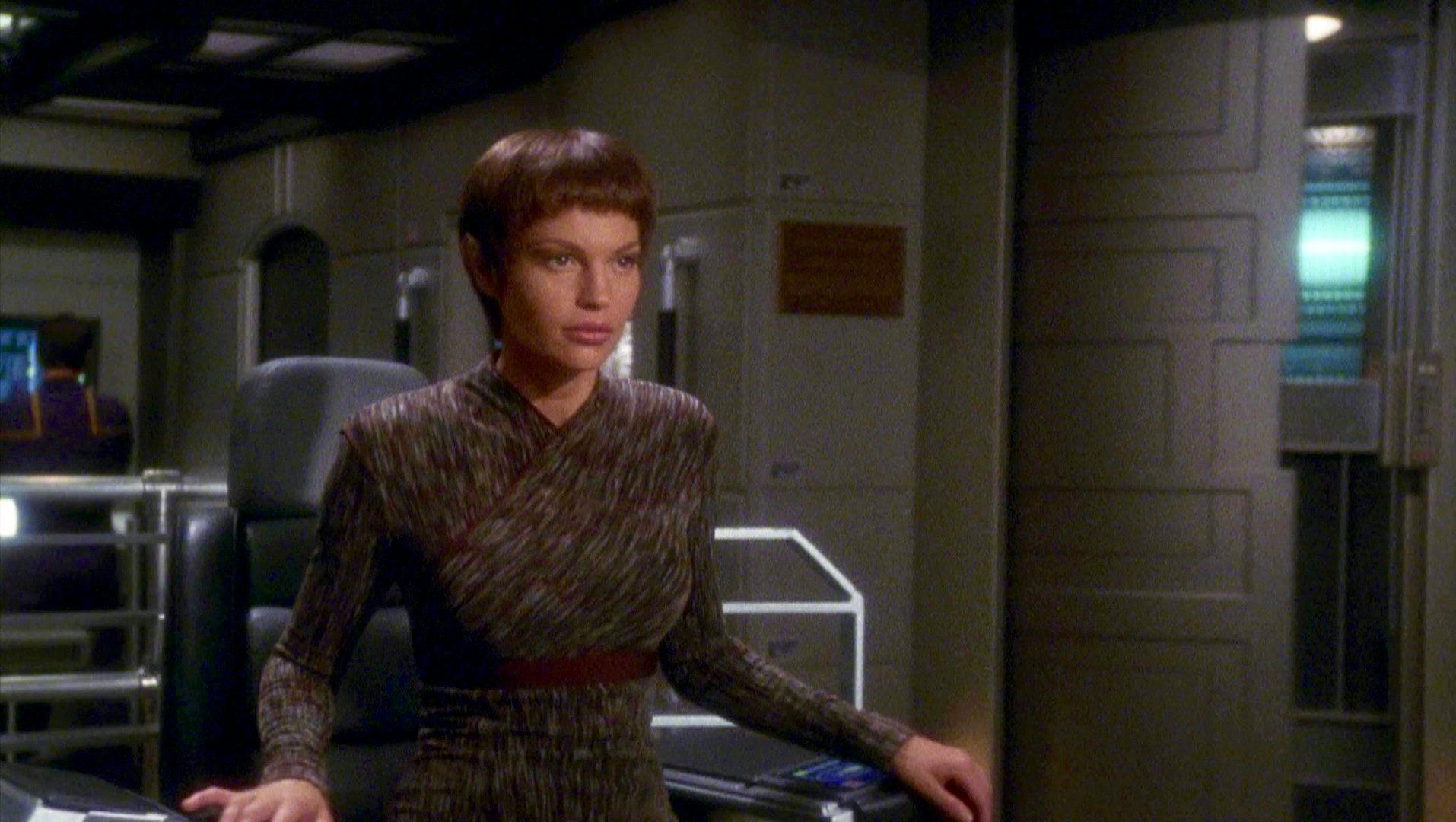
StarTrek.com
In accordance with Star Trek’s message of IDIC — infinite diversity in infinite combinations — it’s essential that we as global citizens of this interconnected world are receptive to diverse worldviews that enable us to grow as individuals. For me, T’Pol teaches that these intercultural exchanges don’t necessitate compromising one’s own sense of self. Even when faced with extreme opposition, T’Pol resolutely stands by her core values but is never so inflexible that she can’t learn from new experiences. That is where her true power lies. My hope is that my fellow Star Trek fans also find attributes of T’Pol’s character empowering, or at least have a moment’s reflection on the value of inner, sometimes silent, strength.
Personally, I was a mid-'90s kid who caught Trekkie fever in elementary school when most of the different Star Trek series had already come to an end. It started with me watching Star Trek: The Original Series and Star Trek: The Next Generation marathons on cable and renting the movies from Blockbuster. I became obsessed. TNG is the series that holds the most nostalgia for me. I fell in love with all of the characters and treasured the messages of valuing diversity and resolving conflict through dialogue, not violence. However, Star Trek: Enterprise was addressing more current political and social issues in the early 2000s. As I was starting high school, Enterprise became a way for me to try and understand the post-9/11 America that I was growing up in, and thus, became the series I gravitated toward.
As I waded through graduate school and truly “adulting,” I continued to watch and re-watch Star Trek. The unique thing about this franchise is that I can take away something new — a unique insight or different perspective — with each re-watch. Recently, I successfully indoctrinated my sister into the world of Star Trek where we, of course, binge-watched Enterprise. It had been some time since I had last seen many of the episodes, and I had come to a realization — I identify with T’Pol’s character more than any other in Star Trek.
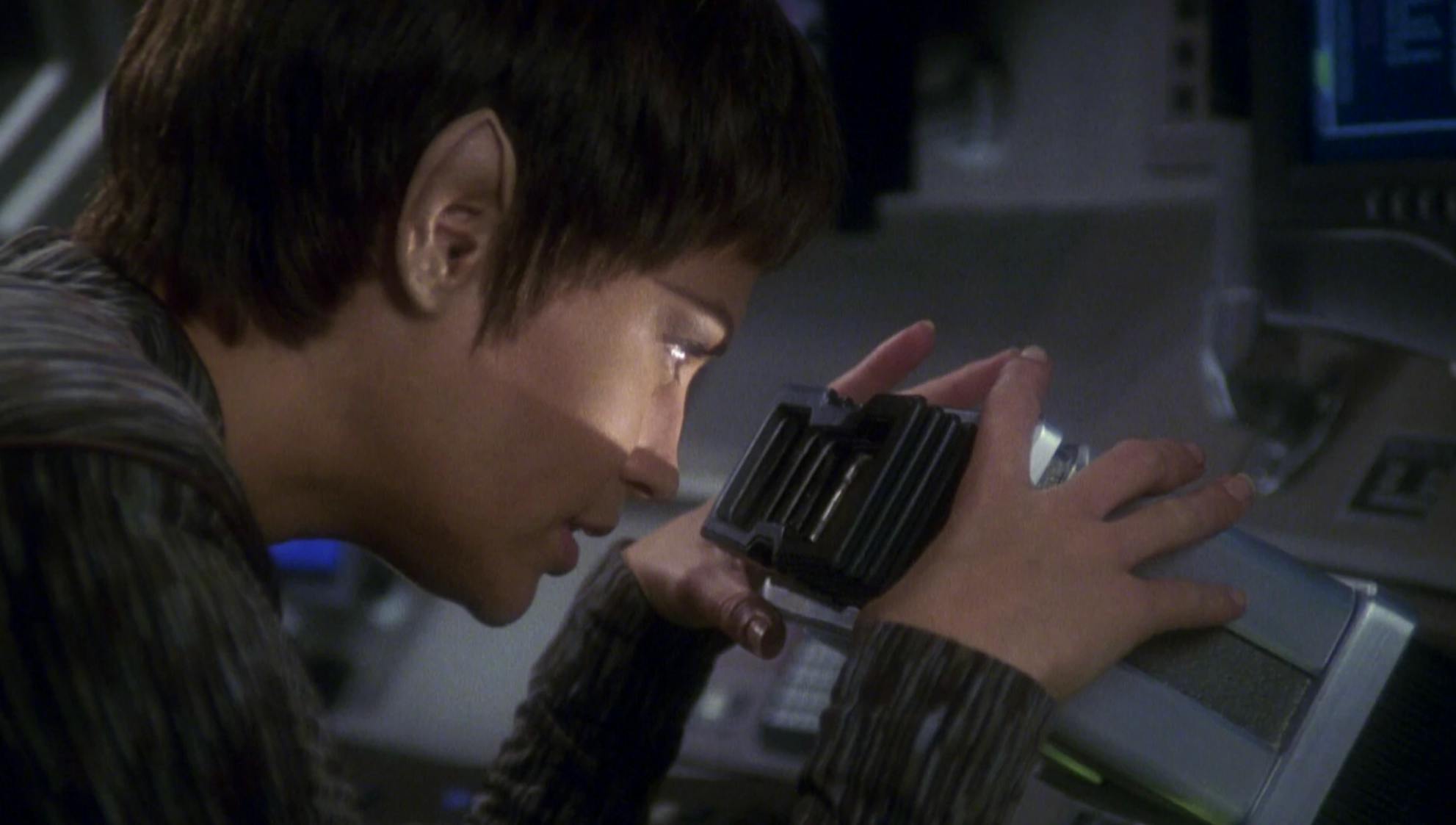
StarTrek.com
When I was a younger, first-time watcher, I admired T’Pol’s intelligence, and actor Jolene Blalock’s grace and poise while she played the character. Now, as I watch Enterprise, I see myself in a lot of ways. Not to say that I am as brilliant and stoic, but as a professional woman engaged in predominantly intellectual labor, I understand the prejudices and social pressures T’Pol experiences as the Enterprise’s first Vulcan second-in-command. Moreover, individuals of all gender identities can relate to entering a new environment and struggling to balance outside expectations with one’s own values and identity.
Being True to Yourself is Only Logical
Before T’Pol even steps onto the Enterprise, Captain Jonathan Archer has preconceived notions of who she is and what she is like — cold and arrogant with a superiority complex. In canon, this is attributed to the fact that she is Vulcan, and Archer harbors resentment towards the Vulcans for stalling Earth’s warp 5 program. At first, he is belligerent and somewhat racist to T’Pol. He puts words in her mouth, questions her recommendations, or just ignores her professional opinions. In the first season especially, Archer and Commander ‘Trip’ Tucker have a tendency to gang-up on T’Pol pressuring her to loosen up, to be more human.
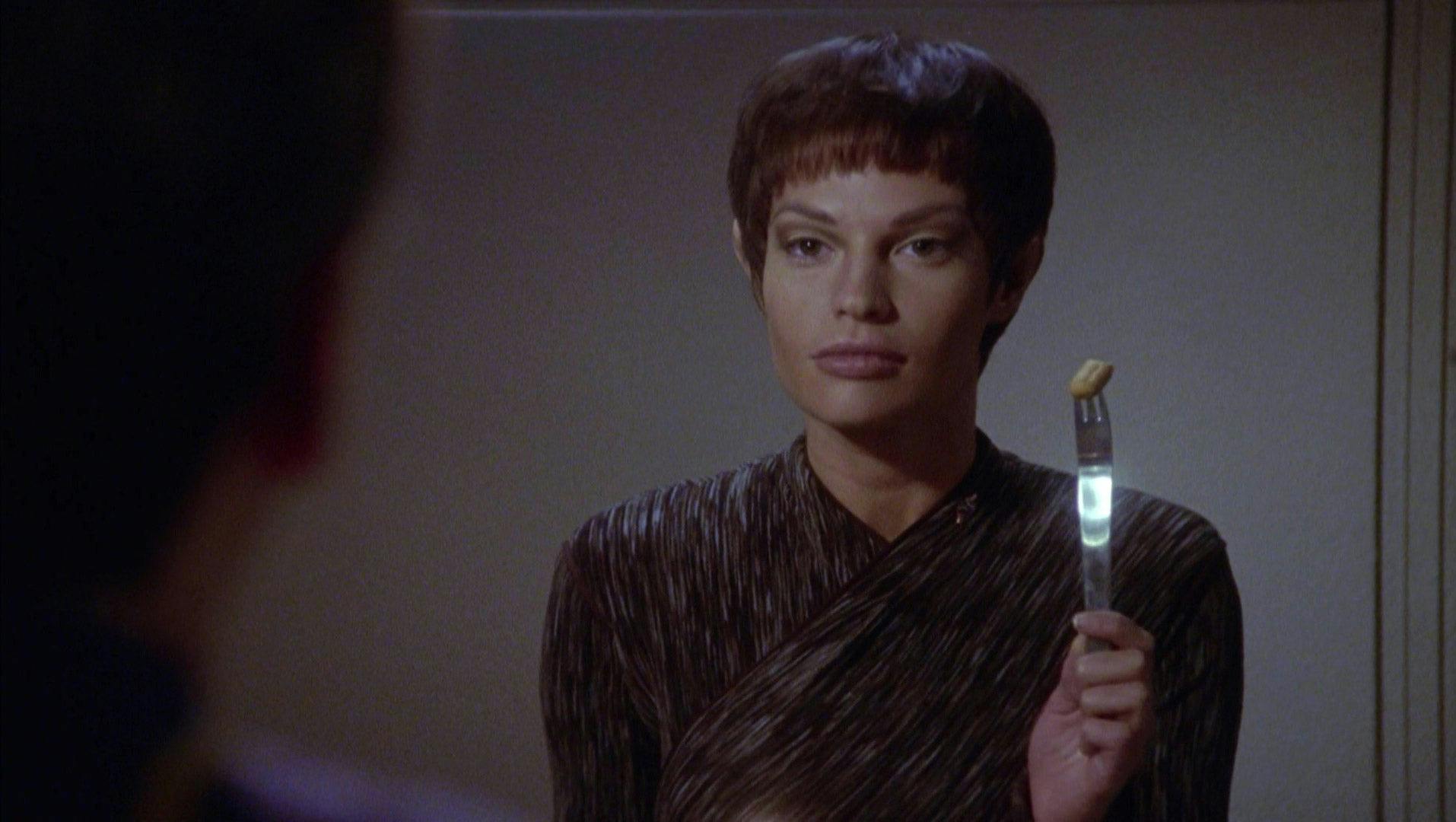
StarTrek.com
Strangely, one of the things that is frequently commented upon is T’Pol’s Vulcan diet and eating habits. Though these differences may be pointed out in order to flesh out the Vulcans as a species, it comes across as purposefully othering her character. A moment in which T’Pol subtlety yet effectively claps back at the men’s teasing is when she expertly eats a breadstick with a knife and fork. In the pilot episode, “Broken Bow,” the senior officers debate the values of humans versus Vulcans in deciding if humanity is ready for deep space exploration. Archer notices T’Pol having difficulty eating an aperitif breadstick with her fork, commenting it would be easier to use her hands. After explaining Vulcan’s don’t touch food with their hands, T’Pol proceeds to carefully cut a breadstick with a knife and fork, punctuating her overall point in the discussion, “With the proper discipline, anything is possible.” Even when in the minority, T’Pol gracefully maintains her own cultural values and identity.
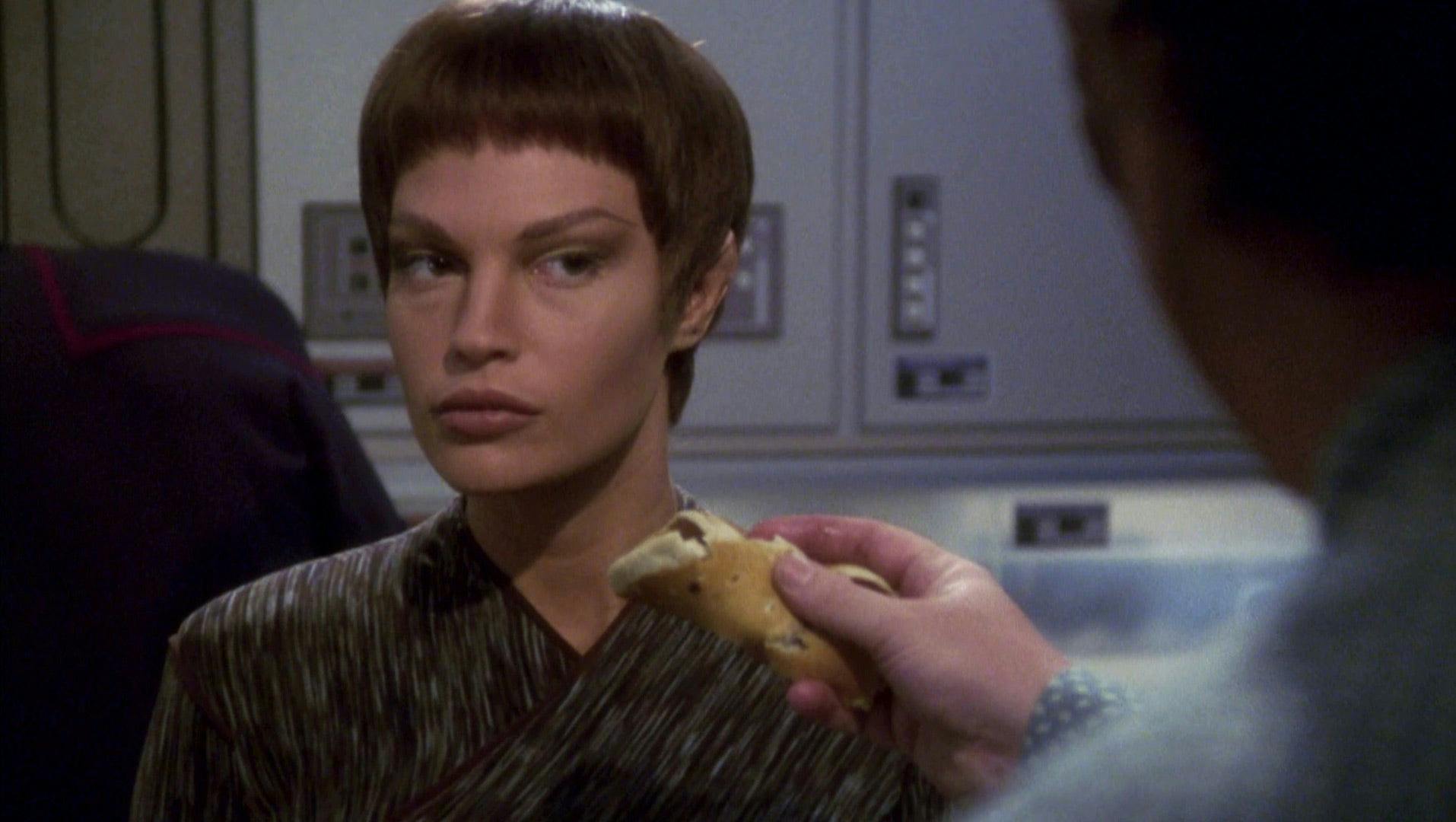
StarTrek.com
Moreover, T’pol stays true to who she is as an individual despite external expectations. As aforementioned, subcommander T’Pol’s maiden voyage as Enterprise’s Vulcan first officer wasn’t exactly smooth sailing. T’Pol takes the risk of accepting a post on a predominantly human vessel, something a Vulcan had never done before. Though members of the crew, Archer included, criticize her for not making an effort to interact with her shipmates as she is known for sequestering herself in her quarters and turning down social invitations. Some could interpret her reserved demeanor as being superior or inflexible, though who can’t relate to needing some time to oneself?
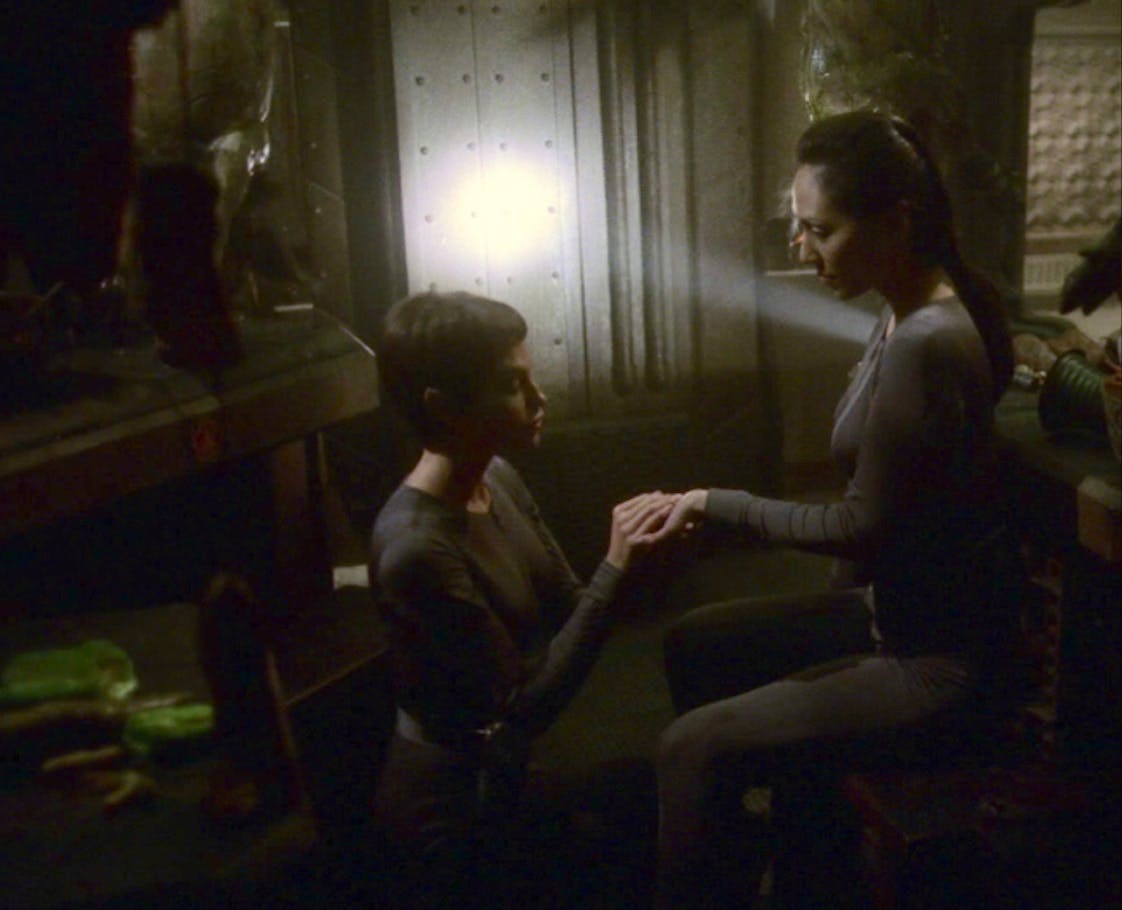
StarTrek.com
Despite these critiques, T’Pol does not change who she is to try and win her crewmates’ approval and instead initiates cultural exchanges on her own terms in ways that are meaningful to her. Usually, these on-screen interactions are predominantly one-on-one and involve her sharing something of her Vulcan heritage as well as learning about human culture. A scene I frequently reflect on is in the episode “Sleeping Dogs,” when T’Pol offers to assist Hoshi in managing her anxiety by teaching her a Vulcan meditation technique. This is a rare character-defining interaction between the two women that demonstrates early on how Vulcans and humans have a lot to offer one another when they work together.
Realizing Silence is Power
[CONTENT WARNING: The below section discusses instances of assault from the Star Trek: Enterprise episodes “Fusion” and “Stigma.” Feel free to skip to the next section.]
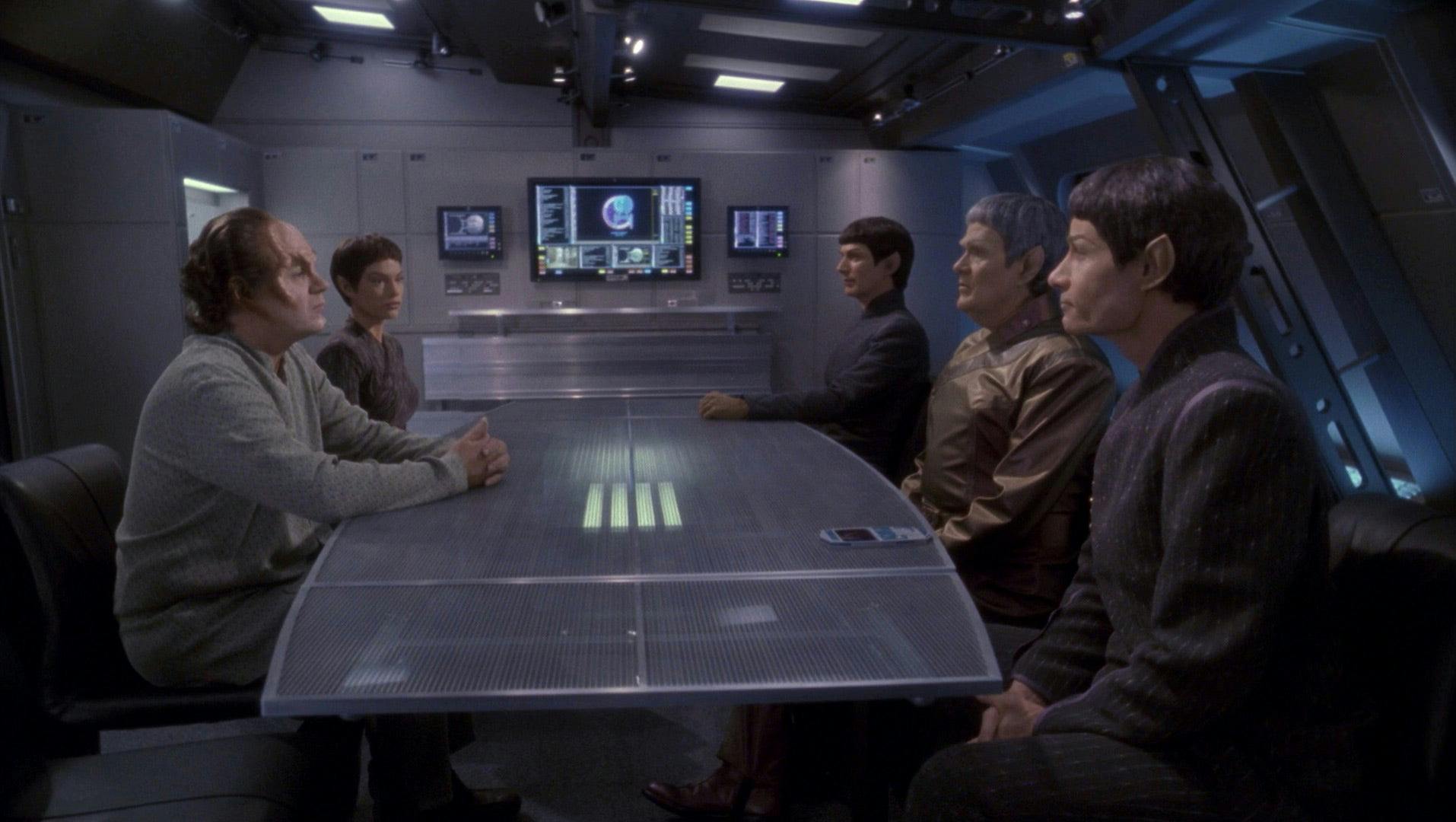
StarTrek.com
The power of an individual’s voice is not simply in its volume, but in the weight it carries. This is perfectly exemplified by T’Pol who demonstrates her own unique personal strength through a few carefully chosen words or, in some cases, silences. Silence as a form of power is most clearly illustrated in the second season episode “Stigma.” T’Pol uses silence to do what she believes is morally right and never wavers from her convictions regardless of the consequences. T’Pol comes under investigation following the revelation she has contracted Pa’nar Syndrome from a non-consensual mind-meld. Following an inappropriately probing interrogation, the Vulcan physicians in question effectively attempt to end her career by sending her home rather than try to treat her medical condition.
To keep her on the Enterprise, both Archer and Phlox pressure her to tell the Vulcan doctors that she contracted Pa’nar Syndrome through an un-consensual meld. However, T’Pol clearly communicates that she does not want to discuss her medical history nor the circumstances under which she contracted the disease. T’Pol states, “If I use that as a defense, as a way to keep from being taken off Enterprise, I’d be condoning their prejudice and, in the process, indicting every member of the minority. I won’t do that.”
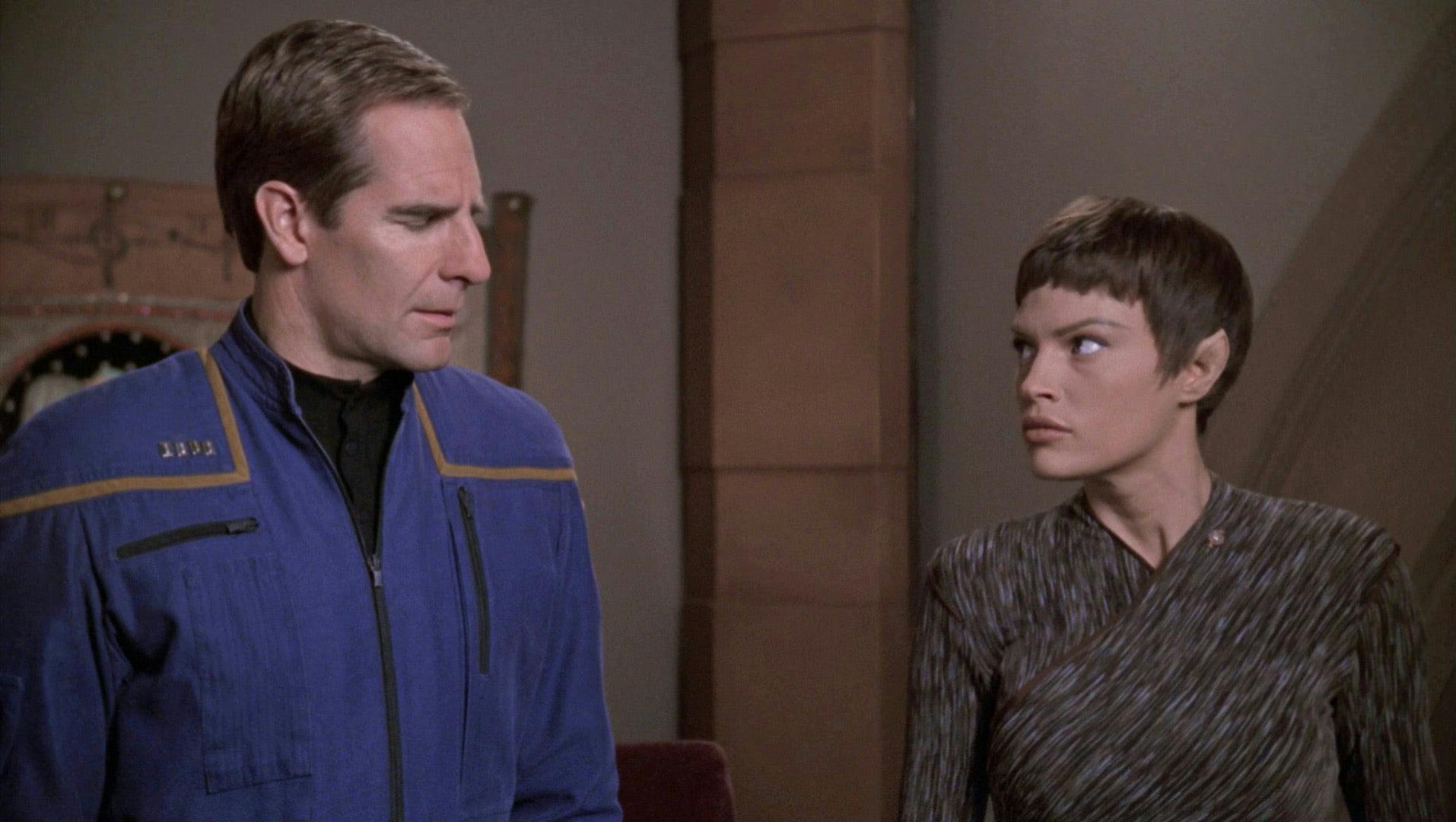
StarTrek.com
Archer believes, at first, that her silence signals her surrender, that she is submitting to prejudice and is accepting her forced removal from her position. As viewers, we may also come to the same conclusion that she is a victim of assault, now a stigma that will ruin her life. However, T’Pol repeatedly states throughout the episode that she is electing to stay silent because she doesn’t want to become complicit in the societal violence against this mind-melding minority. T’Pol’s silence is her way of realizing her agency in a situation where, as Archer sees it, she doesn’t have a choice. But she does.
Although in the end, tragically and problematically, a member of the mind-melding minority that she is trying to protect outs himself as a melder and then exposes the non-consensual circumstances of T’Pol’s meld. Even after her choice to keep the secret is taken, she still remains silent. It is then that Archer finally realizes what she is trying to do and how strongly she feels. When the Vulcan inquisitors demand Archer explain these circumstances, he simply states, “Seems my science officer doesn't want to discuss it. That’s good enough for me.” Now he gets it. T'Pol ultimately refuses to be defined by her trauma and remains proactive in her defiance of this injustice in Vulcan society. She does not need defending or protecting, she effectively makes her point by refusing to speak out.
Furthermore, it is worth noting that the gendered aspect of T’Pol’s character is significant. Typically, in Western society, women who are outspoken and use their voice to occupy space are generally considered more empowered as they mirror the ways in which men are socially encouraged. Women’s silence is often associated with submission, traditionally with how women should behave in a patriarchal society. It is seen as being weak and passive, commonly assigned feminine traits within the patriarchy. Writing against these gendered stereotypes, feminist literary scholar Patricia Lawrence proposes, “women’s silence... may be read as a strategy of resistance and choice – a ritual of truth.” T’Pol effectively demonstrates that silence is an act of agency when she maintains her own truth for the sake of her own values and protecting the civil rights of others.
Though perhaps not in such extreme circumstances, we can identify a time when we felt pressured to do or not do something that ran contrary to our own moral code. I have certainly been in adverse situations where complacency was the easier path in the short term but wasn’t really an option where my conscious was concerned. Living though a global pandemic these past few years particularly highlighted a number of such social issues. Whether the situation calls for speaking out or staying silent, T’Pol demonstrates true strength of character by standing resolutely by her convictions even when faced with extreme opposition.
Maintaining an Open Mind
I find the character T'Pol so compelling not only because she remains true to herself and her core beliefs, but that she also bravely confronts new cultures and ideas enabling herself to learn and grow from those experiences. From my own intercultural exchanges, I’ve found it is by placing ourselves into unfamiliar situations and in encountering new ideas that we can take the opportunity to look into ourselves. T’Pol’s character admirably resists pressures to assimilate into the dominant human culture on Enterprise to maintain her Vulcan identity, while simultaneously remaining open-minded.

StarTrek.com
Eventually, T’Pol develops more respectful and meaningful relationships with Archer and Trip. Both characters come to trust her and value her insights. Though she does take on some “human habits,” and occasionally attends movie night, she never changes the core of who she is, part of which is being an explorer. Before she boarded Enterprise, she worked at the Vulcan Embassy on Earth because she was curious about meeting new people and learning about other cultures. Not to say that T’Pol’s character doesn’t develop, she grows in a lot of ways, but she also stays true to herself and her own values. Throughout the series, T’Pol clearly has sovereignty over her own destiny. She follows her own moral code and finally joins Starfleet, not to conform, but in the hope of creating a better future for all. Likewise, I can be open to new experiences without compromising my own values and who I am. Without succumbing to external social pressures, I can grow and develop as an individual on my own terms, as much as it is in my power.
To sum up, I will quote a comment I contributed to Women at Warp’s podcast episode on T’Pol that punctuates this point nicely, “[T’Pol’s] character shows that one can be open to new experiences and ideas without compromising one’s own values and sense of self. Through her interactions with [but not limited to] her crewmates, T’Pol illustrates how one can grow as a person without succumbing to external social pressures about what a woman, or a Vulcan, is or how she should behave in any given social environment.”
Looking back at Star Trek: Enterprise, I see a lot of myself and my experiences in T’Pol and I admire how she learns from navigating complex interspecies relations and confronting adversity without compromising the integrity of her character. Though as a woman I particularly identify with some more gendered aspects of T’Pol’s character, people of all gender identities can relate to similar experiences of entering into a new context and having to negotiate various expectations with one’s own values and sense of self. T’Pol teaches that with patience and perseverance, we have the strength overcome what challenges may confront us so long as we maintain an open mind and our core values as we boldly go into the future.
Kaja Gjelde (she/her/hers) is a Sami-American writer and researcher with an MA in Indigenous Studies. Gjelde is a life-long Trekkie, feminist and linguaphile who lives a semi-nomadic lifestyle with her Norwegian Lundehund. Find her on Twitter @KGjelde.
Stay tuned to StarTrek.com for more details! And be sure to follow @StarTrek on Facebook, Twitter, and Instagram.
